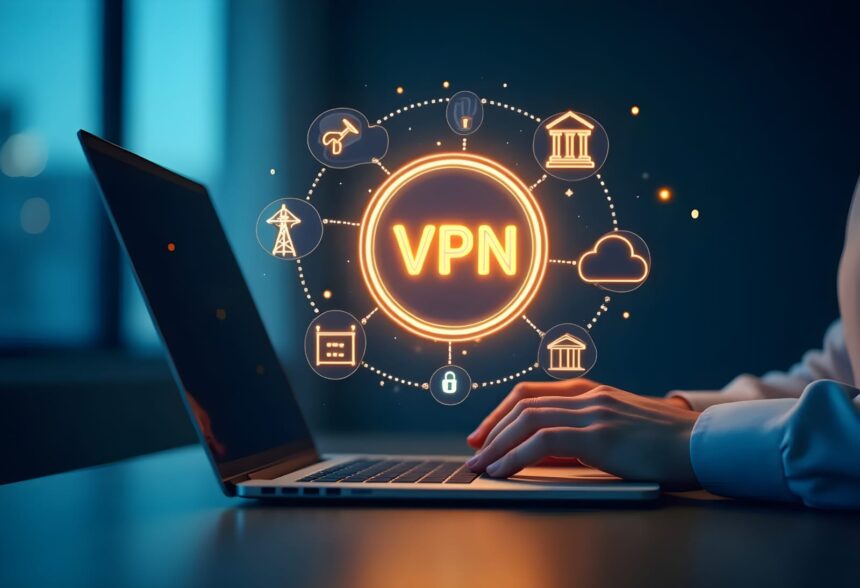Have you ever found yourself trying to get onto a blocked website, or maybe just feeling worried about your online privacy? If so, you’ve likely heard the term ‘VPN’ thrown around. So, what do you need to know about VPN Meaning?
VPN stands for Virtual Private Network, but what does that even mean to a person who is just trying to be secure online? Simply put, a VPN will encrypt your internet use and give you more freedom to surf without restrictions. From public Wi-Fi to accessing content from overseas, a VPN can be your online protector.
Many folks hear the term “VPN” and immediately think it’s just for people who know their way around technology or big companies. But it’s something anyone can use to surf the web more securely and privately. You can picture it as a tunnel that keeps your data hidden from anyone trying to peek while you’re online. Once you’re connected, your online identity is kept under wraps, which gives you a safer and more open browsing experience.
VPN Meaning and Function: Explained for First-Time Users
A VPN operates by channeling your internet connection through a protected server. This server keeps your real IP address private and scrambles your data, turning it into code that hackers, your internet service provider, or even government monitoring can’t easily read. Once you’re using a VPN, websites notice that server’s location, not where you are.
This is highly helpful when using public Wi-Fi since these networks are often not secure and can be easily targeted by attackers. Suppose you’re connected to a VPN, even if someone attempts to snoop on your connection. In that case, they won’t be able to make sense of the information you’re sending or receiving. It’s similar to having a private, locked room while walking through a public hallway.
Everyday Benefits of Using a VPN
For most internet users, a VPN does more than just protect their privacy. It can also let you see content that might be unavailable where you live, like certain videos, news websites, or social media apps. Essentially, a VPN allows you to pretend you’re somewhere else online, opening up more of the web wherever you happen to be.
One advantage is the ability to sidestep online tracking and those pesky targeted ads. Advertisers monitor your IP address and track what you do online just to show you specific ads. A VPN helps by hiding your identity and making it much tougher for companies to follow your digital trail. For a lot of people, this leads to a more private and less cluttered time spent browsing the web.
Choosing the Right VPN for Your Needs
A huge range of VPN services are available, but they aren’t all the same. When you’re picking one, focus on important things like strong encryption, a policy that promises not to keep logs of your activity, and a good spread of servers worldwide. You’ll also want to ensure it works smoothly with whatever devices you use, like your phone, tablet, or laptop.
Free VPNs might sound like a great deal, but they often have downsides. You might find them slow, have access to fewer server locations, or worry about what they’re doing with your data. A paid VPN service from a reputable company usually gives you a much better experience with stronger security, faster speeds, and more options overall. Before you decide which one to go with, think about what you need it for – like streaming your favorite shows, shopping online securely, or ensuring your info stays private from snoops.


